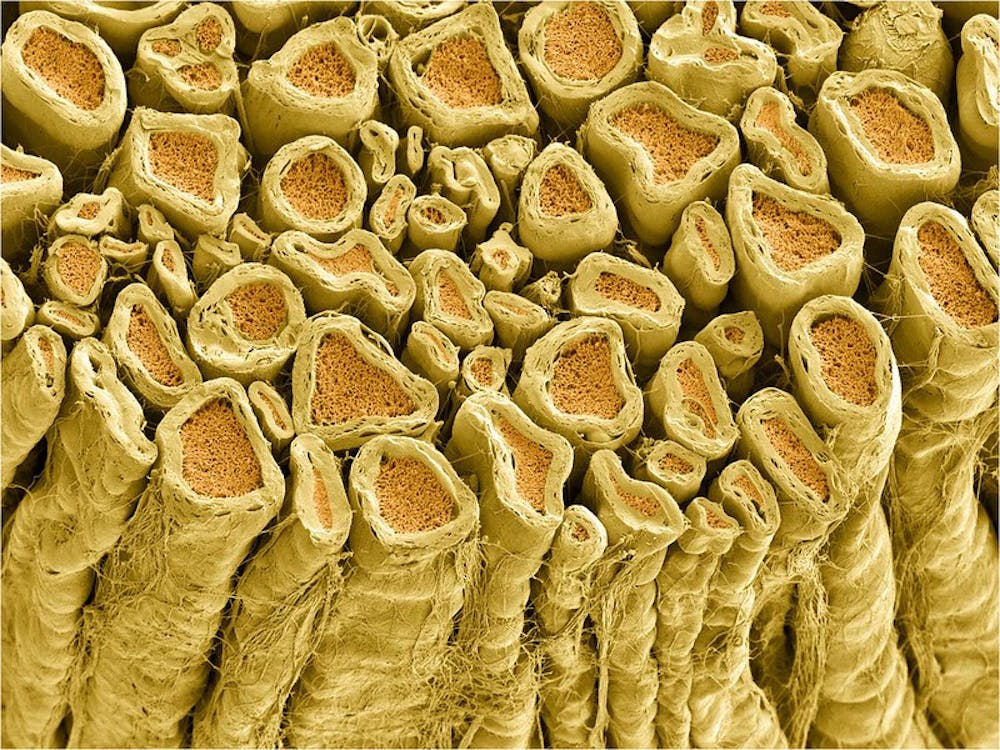For the past ten months, the Ebola virus has been ravaging West Africa. Healthcare workers are struggling to keep up with the rising numbers of infection and disease containment as well as a lack of funding and resources. Despite these obstacles, a light at the end of the tunnel may be emerging as researchers are brewing an experimental Ebola vaccine that could be the saving grace for the thousands of people at risk for contracting Ebola.
The virus is spread through direct contact with infected humans and animals. It is believed to have been originally introduced to the human population through handling of blood, organs and other bodily fluids of infected animals such as gorillas, monkeys, fruit bats and antelope. In human-to-human transmission, infection occurs when the mucous membranes or open wounds of an uninfected person either comes into direct contact with an infected individual’s bodily fluids or comes into indirect contact with environments contaminated with infected bodily fluids.
Many public health officials believe that the spread of the disease is partially due to the fact that many individuals contract the disease when they attend the funerals of people who had died of Ebola because the mourners are directly exposed to the infected body.
The current outbreak, which is the worst in history, has infected and killed more people than all the previous Ebola outbreaks combined; as of Sept. 7, at least 4,300 people have been infected, and more than 2,200 people have died. The epidemic began in December 2013 in Guinea and has continued for nearly a year without showing any signs of stopping. In fact, about 40 percent of all deaths have just been in the past month, and the World Health Organization (WHO) estimates that the outbreak will claim 20,000 more lives.
Scientists from the National Institutes of Health (NIH), GlaxSmithKline (GSK) and the Public Health Agency of Canada have been working towards a method to staunch the outbreak.
A study published last Monday in Nature Medicine conducted by the NIH in conjunction with GSK used macaque monkeys to test the effectiveness of a preliminary vaccine. The researchers genetically modified a chimp virus containing components of two species of Ebola: the virus currently circulating in West Africa and a common Sudanese species. While the viral vaccine does not replicate inside the body, scientists hope that the immune system will react to the Ebola antigen component of the vaccine and produce antibodies to develop immunity.
For their study, researchers injected four monkeys with the vaccine while the control group was given nothing. After five weeks, all of the monkeys were injected with a lethal dose of Ebola virus. The vaccinated monkeys survived the infection — in fact, the virus was not even detectable in their blood. The unvaccinated monkeys, however, died within six days after infection. In order to test long-term effectiveness, the scientists gave the vaccinated monkeys another lethal dose of Ebola after 10 months. Only half of the monkeys survived a second dose, suggesting that a booster shot is needed to maintain the vaccine’s effectiveness. The WHO estimates that the safety data for the vaccine should be ready by late fall.
Another vaccine is being developed by the Public Health Agency of Canada and is scheduled to be tested on healthy volunteers in the near future.
The two potential vaccines are still undergoing clinical trials and will not have initial safety data until November at the earliest. If all goes according to plan, frontline staff and healthcare workers will be the first to receive the vaccine.
In the meantime, experts from the WHO suggest treating patients with blood transfusions from Ebola survivors. Since the survivors were able to produce antibodies against Ebola, their blood could help a newly infected individual fight off the virus. However, the local healthcare infrastructure is in a poor state to safely and effectively collect blood and perform the transfusions so treatment will be a challenge.















Please note All comments are eligible for publication in The News-Letter.